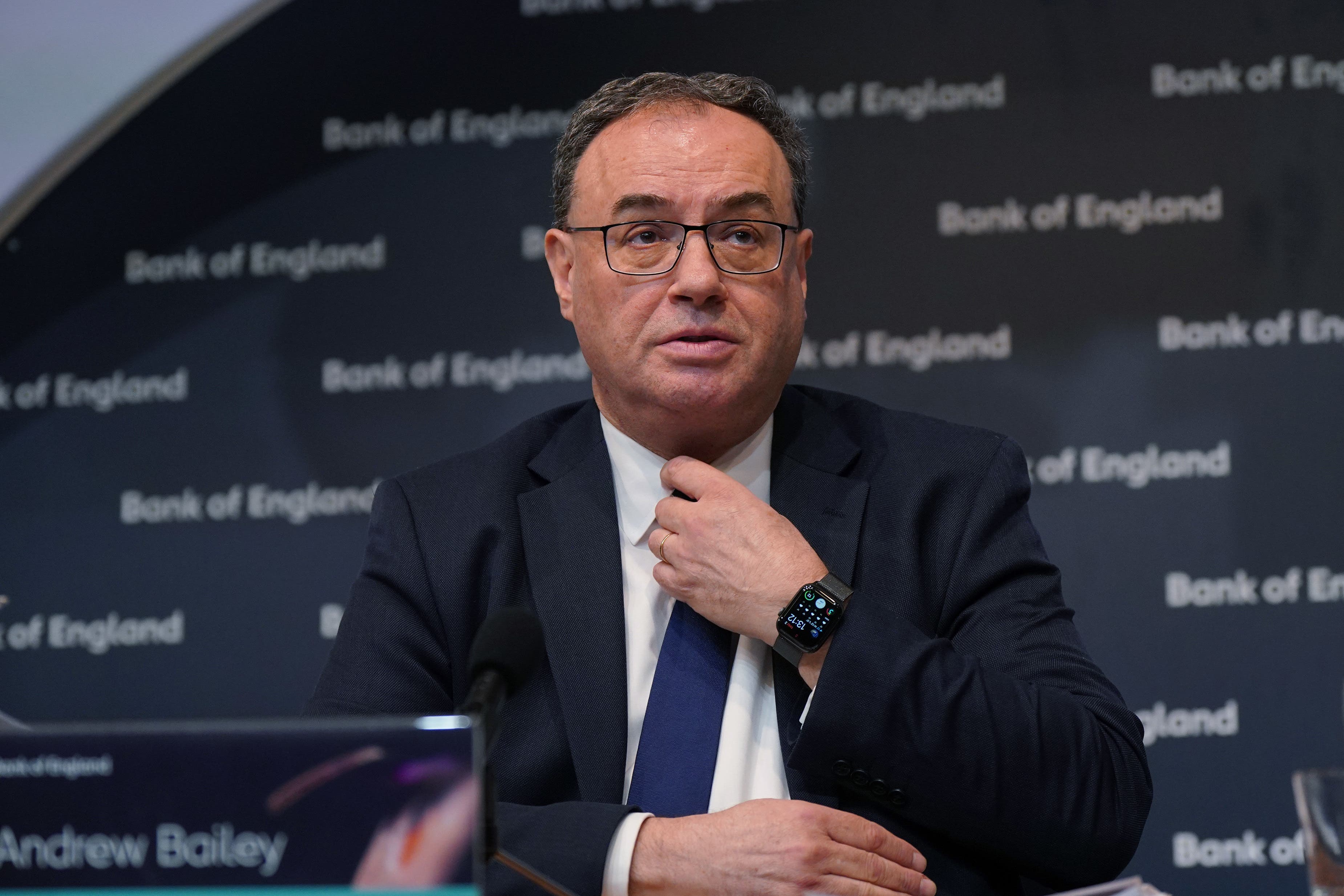As banks wobble once more, Britain must beef up depositor protection
The Bank of England has raised concerns about the current system, which covers up to £85,000 or £170,000 for joint accounts, writes James Moore


The Bank of England’s governor Andrew Bailey thinks the UK’s depositor protection might need beefing up. And he’s right. It does.
To explain why we need to go back to 2007 and the queues of people trying to withdraw their money from Northern Rock branches, the first run on a UK bank for more than 100 years. It was triggered by the BBC’s report that the lender had accessed the Bank of England’s special liquidity scheme set up amid a credit crunch and gathering financial storm.
Reassuring statements followed. No need to fear, or act in haste. We have depositor protection! Trouble is, the latter covered only the first £2,000 followed by 90 per cent of the next £33,000. The scheme was set up that way because regulators fretted about the “moral hazard” they saw in offering full coverage. This, they feared, might create perverse incentives for people, and banks, to throw caution to the wind.
But the setup made the case to quit the Rock overwhelming. Why run the risk of losing 10 per cent, and (potentially) having to wait to get your money back while the dust settled? Far better to take your money and run. If you could. Especially if you had more than £35,000 in savings.
The result was the de facto nationalisation of the Rock and the creation of a beefed-up deposit protection scheme, covering 100 per cent of the first £85,000, or £170,000 in the case of a joint account. Additional compensation may be paid for “temporary high balances” if applicable.
But even that is looking shaky in the event of the collapse of Silicon Valley Bank, the subsequent emergency rescue of Credit Suisse, the wobbles of America’s regional banks. This is not 2007-08. But flaws and banking, and in regulation, are nonetheless being exposed.
While that £85,000 per person limit covers the vast majority of people, and the Financial Services Compensation Scheme is able to act within seven days, reducing the “tied up in red tape” customers may have feared during the Rock affair, it still mightn’t be enough.
The banking industry is built on confidence. No bank, not even the strongest, could expect to pay back all its depositors if they all demanded their money at the same time. That won’t happen so long as a depositor is confident that they can get their money when they need it. However, if a depositor is worried that their bank is wobbly, and they have more than £85,000 on deposit, the case to quit in favour of a safer harbour is once again overwhelming. And digital transfers make doing so rather easy.
If a bank’s big depositors all decide to quit in short order, it’s still in trouble. As recent events have demonstrated. No wonder. They tend to be financially sophisticated and well aware of the risks of hanging around.
The US system is better in that it protects up to $250,000 (£200,000) per person. But it has nonetheless witnessed a “flight to quality” with large, financially powerful, too-big-to-fail institutions enjoying an influx in deposits. Smaller banks, more lightly regulated as a result of the Trump administrating caving into Wall Street’s urgings, have lost out. But so has the overall banking system. Confidence has taken a knock.
The UK has so far been able to watch from the sidelines while these events have been taking place. Nervously. The banking sector plays a disproportionately large role in the UK economy. Some investors have headed for the exit putting share prices under pressure. If that is where this ends, there will be sighs of relief all round.
But Bailey is clearly worried, voicing fears about whether the current depositor system would work as intended for smaller banks and concerns about the dividing line between which deposits are protecting and which are not.
Roughly 15 years on from the financial crisis, a sudden, sharp rise in interest rates has raised uncomfortable questions. Beefing up the regime in response would not be cost-free. And larger banks, who will likely be asked to pay the most towards it (as happened previously), will doubtless moan and wail even if reform is ultimately in their interests.
Which it is. Better for them to argue about the structure and who pays because reform needs to happen and Bailey’s indicating that it will is to be welcomed.






Join our commenting forum
Join thought-provoking conversations, follow other Independent readers and see their replies
2Comments